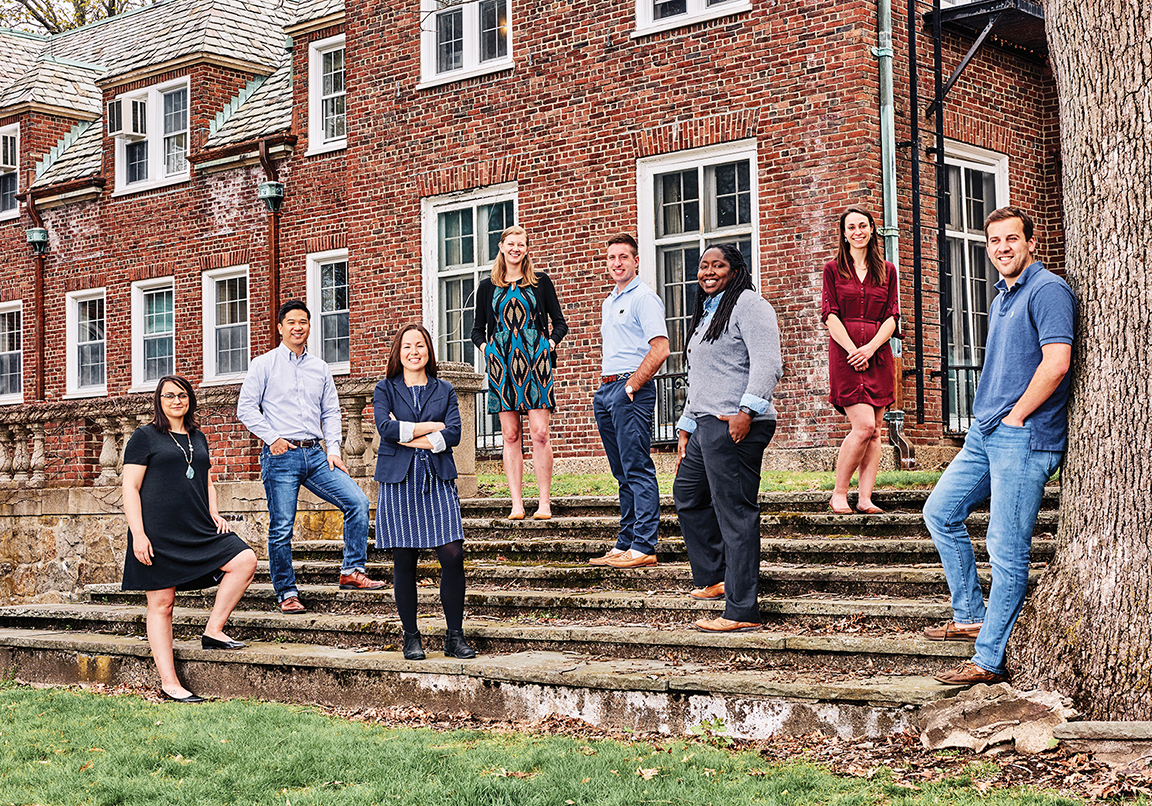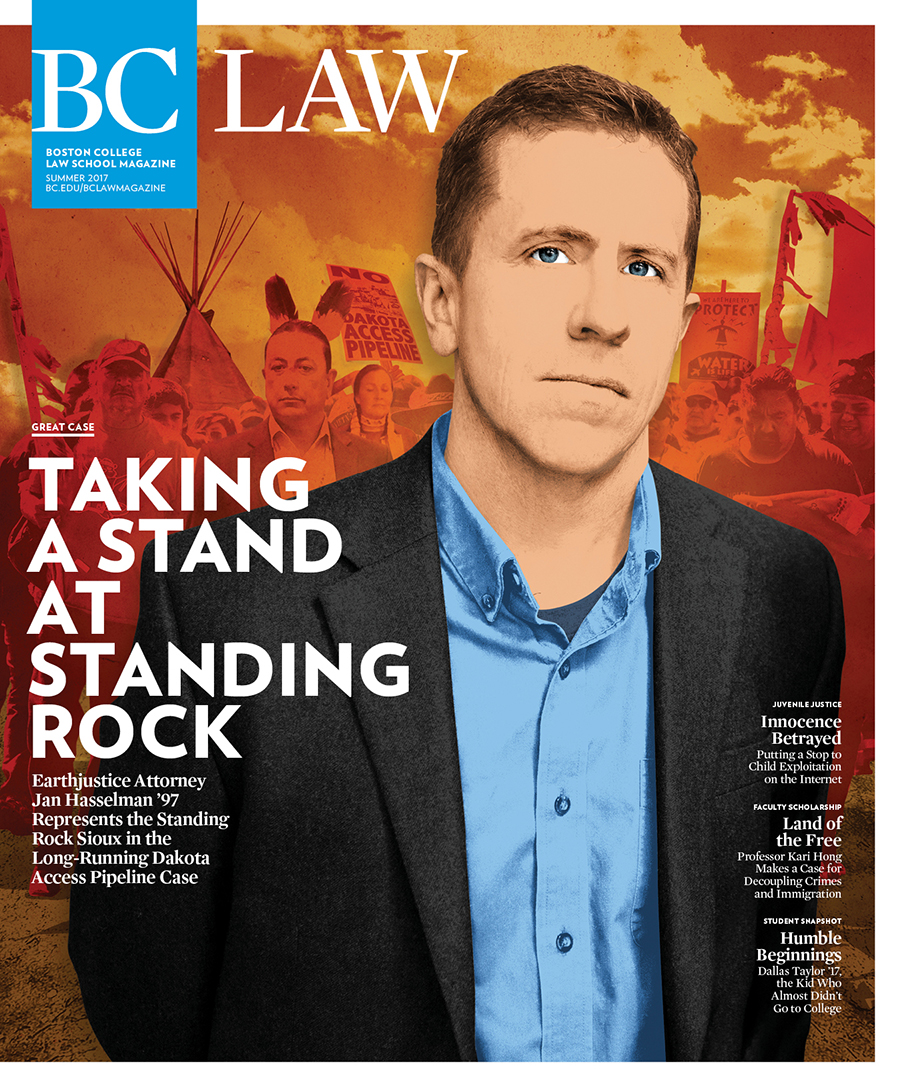Big changes are in the works for the law reviews at BC Law. A consolidation brings three specialty reviews into the main Boston College Law Review (BCLR), a move that is seen as advantageous for a variety of reasons. A fourth publication, the Uniform Commercial Code Reporter-Digest, administered at BC Law but published by Matthew Bender & Company, will remain independent.
Dean Vincent Rougeau described some of the reasons for and advantages of the merger. “Consolidating the law journals will allow for greater selectivity in the articles that are published, including those on topics previously handled by the Environmental Law Review, the International & Comparative Law Review, and Journal of Law & Social Justice,” he said. “The broader legal community benefits because our articles are noticed and cited more often, which in turn attracts higher caliber academics to publish with us and attend conferences we sponsor, which in turn provides students with a better academic experience.”

The change is a result of a BC Law Publications Committee study that cited a quickly evolving trend among law schools to terminate specialty journals or to move them to an online-only format. The committee noted that generic journals have an easier time soliciting higher quality articles with greater citation potential.
BC Law has come up with its own approach to this trend, which recognizes that everyone stands to gain from a more robust flagship journal, even as it preserves its journals’ legacies.
The consolidation acknowledges the Law School’s debt to the journals’ founders and early stewards, professors Ruth-Arlene Howe (Third World Law Journal, renamed Journal of Law & Social Justice), Peter Donovan (Environmental Affairs Law Review), and Francis J. Nicholson, SJ (International & Comparative Law Review). As Zygmunt Plater, the longtime faculty advisor to Environmental Affairs, wrote in his foreword to that publication’s final issue, “As a living river, the Boston College Law Review that flows…into the future will always carry a special legacy and commitment for sustaining and nourishing our school’s special vision of law and public service.”
To maintain the integrity of the specialty journals’ interests and to retain the student talent, the Law School has committed to publish an equivalent number of articles each year on environmental, international, and social justice law by expanding the main journal’s output from five issues per year to eight.
The expansion is regarded as having other benefits as well. It concentrates all high performing students onto one staff, creating a less Balkanized journal program and more diverse flagship publication. It brings to bear BCLR’s organizational strengths and the reputation it has earned from outside authors for its editorial processes. Finally, a staff restructuring spreads the workload and potentially boosts the number of student notes and comments published in print and online.
“It’s a huge net positive for everyone involved,” said outgoing BCLR Editor-in-Chief Thanithia Billings ’17. “We can get out much more work while making BCLR more enjoyable for editorial board members.”
Indeed, Billings’ own position is undergoing a change. In the new academic year, her seat will be filled by two editors-in-chief, 3Ls Kelsey “KG” Gasseling and Caitlin Toto, each of whom will oversee four issues of the journal.


